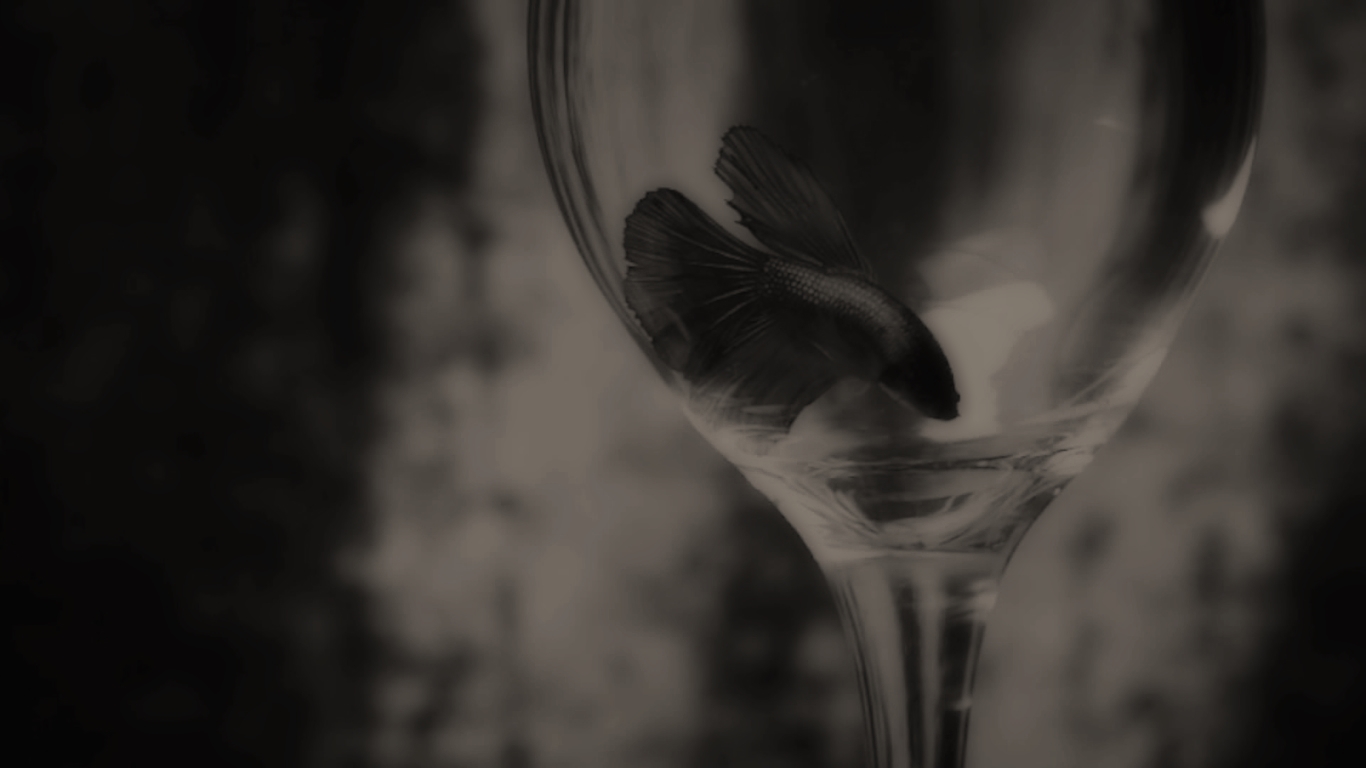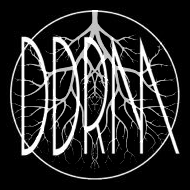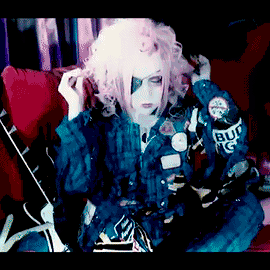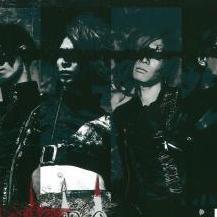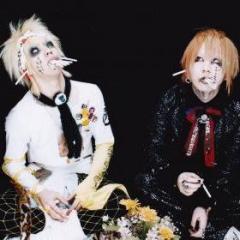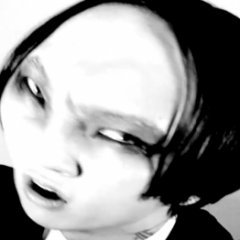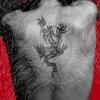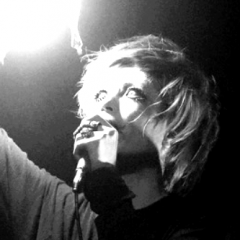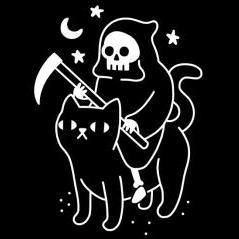-
Content Count
625 -
Joined
-
Last visited
-
Days Won
2
Reputation Activity
-
 Shmilly got a reaction from ぺるしゃ猫 in mysterious new band "THE MYSTERY" mysteriously forms
Shmilly got a reaction from ぺるしゃ猫 in mysterious new band "THE MYSTERY" mysteriously forms
So mysterious I'm struggling to care.
-

-

-
 Shmilly got a reaction from IGM_Oficial in DADAROMA new maxi single release
Shmilly got a reaction from IGM_Oficial in DADAROMA new maxi single release
It was a great show tonight. Fake snow fell in Lucid Dream to end the main set and the band just left in silence. Very dramatic.
Yoshi, you better damn well put Kids War on this single 'cause we all know it's been long enough before you let us hear it outside lives.
-
 Shmilly reacted to Trombe in Aimer new album "daydream" release
Shmilly reacted to Trombe in Aimer new album "daydream" release
Aimer new album "daydream" will be released at 2016/09/21 (3 TYPE)
limited Blu-ray edition (4,600yen) will include CD+Blu-ray, limited DVD edition (3,600yen) will include CD+DVD, and regular edition (3,000yen) will include CD only
[CD track list]
01.insane dream
[music & produce: Taka(ONE OK ROCK)]
02.ninelie(with chelly(EGOIST))
[music & produce: 澤野弘之]
03.twoface
[music & produce: 内澤崇仁(androp)]
04.Higher Ground
[music: Taka(ONE OK ROCK)]
05.for ロンリー(with 阿部真央)
06.蝶々結び
[music & produce: 野田洋次郎(RADWIMPS) / Gt.&Cho.ハナレグミ]
07.カタオモイ
[music & produce: 内澤崇仁(androp)]
08.Hz
[music & produce: スキマスイッチ]
09.声色
[music & produce: TK(凛として時雨)]
10.closer
[music & produce: Taka(ONE OK ROCK)]
11.Falling Alone
[music & produce: Taka(ONE OK ROCK)]
12.us
[music & produce: TK(凛として時雨)]
13.Stars in the rain
[music: Taka(ONE OK ROCK)]
[limited edition Blu-ray/DVD track list]
・MUSIC VIDEO
insane dream
us
ninelie
Falling Alone
蝶々結び
・Aimer Live Tour "DAWN" LIVE (included in limited Blu-ray edition)
MOON RIVER
Believe Be:leave
Noir! Noir!
あなたに出会わなければ~夏雪冬花~
君を待つ
Re:pray
Re:far
Heartache (ONE OK ROCK cover)
誰か、海を。
AM02:00-AM04:00
After Rain
星の消えた夜に
LAST STARDUST
Brave Shine
DAWN
・BONUS TRACK「甲鉄城のカバネリ」SPECIAL ENDING MOVIE
-

-
 Shmilly got a reaction from -NOVA- in メディーナ(Mediena) will disband & best album "Gothic Cult" release
Shmilly got a reaction from -NOVA- in メディーナ(Mediena) will disband & best album "Gothic Cult" release
I'm getting it from Like an Edison. Maybe we can all somehow get the full live! XD
-
 Shmilly got a reaction from HotaruFilth in Pokemon Go
Shmilly got a reaction from HotaruFilth in Pokemon Go
On the one hand, the irony that Japan, home of Pokemon, doesn't have this yet amuses me greatly.
On the other hand, I live in Japan. Hurry up fixing those server issues and give it to us already! XD
-
 Shmilly reacted to peffy in My Japanese Rock conundrum
Shmilly reacted to peffy in My Japanese Rock conundrum
Hmm. I just want to say that... it should not matter how long a band sticks around before disbanding. They make music, and deserve to be supported (financially and emotionally) by fans of their music.
Suppose a hypothetical band releases one amazing masterpiece album that you loved so much that you bought it. You even saw them live. Then, they disband out of nowhere. Does that suddenly mean the album can't be enjoyed anymore? Does that mean you wasted your money? Do you wish that you never went to that concert?
Music has no expiration date. People still enjoy music by artists who are long dead, let alone disbanded. Just because they are no longer alive/active, does not mean that you can't still enjoy what they produced. And, fear that a band could soon disband shouldn't discourage you from listening to their music.
If you still like the music by the bands you listed, you still like J-rock. You might not like any NEW J-rock, but the old J-rock will always be there for you if you want it.
..
Sorry if any of that sounded really corny. And you know, all that is my opinion of how music should be enjoyed. If you want to insist on only listening to "new music" or "bands that are unlikely to disband", feel free, you do you.
-
 Shmilly got a reaction from Biopanda in アヴァンチック (Avanchick) will perform in America
Shmilly got a reaction from Biopanda in アヴァンチック (Avanchick) will perform in America
This is great news. When I went to report for JROCKNEWS.com they were super excited to have multiple foreign press at the show. Now they're playing in America. I think they're really going for it in a way that not many VK bands - especially indies - are these days. Since most are interested only in the domestic market, it's great to see more new groups these days recognizing their international audience. Take a look at the work V STAR PROMOTION is doing too.
In summary, pleased for Avanchick. Go get 'em.
-
 Shmilly got a reaction from r... in [Review] DADAROMA - 「スタンチク」(Stanczyk)
Shmilly got a reaction from r... in [Review] DADAROMA - 「スタンチク」(Stanczyk)
I can see both sides of this argument. On the one hand, it's a so-called 'best album' so it's not surprising that the tracklist leans toward the longer side. In addition, most of the returning tracks were previously only available on a sold out live-limited release, so this gives many fans their first opportunity to buy/hear them. On the other hand, I can see how first time listeners might get a little tired; perhaps it's exactly because I've listened to 'dadaism 1' endless times myself that the familiarity of old material makes it more tolerable on a lengthy album.
For what it's worth, when you take out the opening SE and the piano version of 'KURT' which is only on one edition, you're left with 14 tracks, which is not too unreasonable for a full album release.
-
 Shmilly got a reaction from orange~ in [Review] DADAROMA - 「スタンチク」(Stanczyk)
Shmilly got a reaction from orange~ in [Review] DADAROMA - 「スタンチク」(Stanczyk)
DADAROMA
「スタンチク」(Stanczyk)
01 オープニング (Opening)
02 「リズリーサーカス」 (Risley Circus)
03 「最終電車」 (saishuu densha)
04 トレンドアイデンティティ (Trend Identity)
05 融け込めないざらざらな芸術を君が殺してくれないか (tokekomenai zarazara na geijutsu wo kimi ga koroshitekurenai ka)
06 「雨のワルツ」 (ame no waltz)
07 ベルカとストレルカ (Velka & Strelka) (Re recording Ver.)
08 モルヒネ♯1 (Morphine 1)
09 モルヒネ♯2 (Morphine 2)
10 SEX!!
11 「溺れる魚」 (oboreru sakana)
12 MONEY
13 月のうた (tsuki no uta)
14 imitation hero.
15 「ルシッド•ドリーム」 (Lucid Dream)
<16 KURT (piano Ver.)>
Before we begin I’d like to note that I picked up both versions of this album at the band’s tour final last week, so it’s already had plenty of spins for me to base my opinion on. Now that the rest of you guys can hear it, I figured it's a good time to post my thoughts.
So here we are at last – a full album release from one of the fastest growing bands in recent memory, DADAROMA. Led by frontman Yoshiatsu, who also has the talent of knowing exactly how to market his band to maximise interest, these guys appeared on the scene last January with nothing but a music video for their first song, ‘oboreru sakana’. The heavy but dramatic introduction to this mysterious new band drew the interest of many both within and without the visual kei community. However, unluckily for even national fans, their first mini album was and remained limited to sales at lives: a strategy that undoubtedly helped the young group take off by tempting fans to head on over to their lives and pick up a copy, but equally alienated those who couldn’t attend, especially foreign fans with no way to acquire this rare debut release.
But of course, this is the age of the internet, and it wasn’t too long before ‘dadaism 1’ was available to all to hear free of charge, if not exactly legally. And this is my main cause of disappointment, not in ‘Stanczyk’ and DADAROMA’s decision to include that entire first release, which is itself commendable to please their ever-growing fanbase, but in the community which lessened the value of it, and by extension of this so-called ‘best album’ that is unfortunately fairly packed with tracks we’ve heard before.
The album opens with a short introduction that sets up lead track ‘Risley Circus’, named for 19th century performer Richard Risley Carlisle, who pioneered the act of juggling with feet rather than hands. Indeed, Yoshiatsu packs many intriguing cultural references into DADAROMA’s songs, with the album itself a nod to the possibly mythical Polish jester Stanczyk and a generally pierrot-inspired theme running through both the band’s visual stylings and the lyrics of several songs. Risley displays some experimentation with electronic sounds and vocal distortion which may divide fans, but it’s undeniable that the catchy chorus will stay with you even after the track ends.
Next comes single track ‘saishuu densha’ (Last Train), which is notorious for its highly erotic promotional video being removed from YouTube not once but twice, despite the band’s efforts to pixelate offensive material. DADAROMA have dabbled in jazz a fair amount, but this is in my opinion one of their best attempts (see also: the sensual ‘urei libido’ from the ‘ame no waltz’ single). Once again a catchy chorus and a steady pace held by the percussion parts make for a memorable track.
‘Trend Identity’ is the shortest track the band have produced to date. It recalls ‘kusatta mikan no houteishiki’ with the heavy riff matched with synth stylings, and was clearly made for live performance, but it sets itself apart a little with Yoshiatsu’s first attempt at something approaching a rap. Not particularly memorable itself, but it was fun at the tour final last week.
Next we have a ridiculously long title that I can’t be bothered to type out again, but which is important to the album as a whole because it relates to the theme of art (Yoshiatsu’s final screams ‘kore wa geijutsu/this is art’ adorn the album’s obi strip). The bell-like motif immediately creates an interesting atmosphere as Yoshiatsu whispers his way through the verses, and from there the song builds into a powerful chorus. While initially the verse portions didn’t do a great deal for me, I do really enjoy said chorus and this track has grown on me a lot with repeat listens.
Single number two, the red herring ‘ame no waltz’ that, quite unlike a waltz, breaks out of the soft music box and raindrop opening into a brutal chugging guitar riff, fits pretty well here after the raw scream that ended the last track. Somehow this song made its way onto a Japanese TV drama as the ending theme, which is somewhat of a mystery to me but I appreciate it nevertheless as the sole DADAROMA song that actually appears at karaoke. I have an ambivalent relationship with this track – it’s a good song, but sometimes I just want to skip it and get on to something else. YMMV but at any rate it's another song we've heard before.
At this point we enter the cluster of tracks that is just ‘dadaism 1’ in a different order. While I appreciate that now fans who couldn’t get hold of that first live limited release (ie most fans) can now hear all those songs they’ve been playing for 18 months, it’s a little disappointing that they didn’t try and blend them more into the tracklist rather than just dumping them all together. For this reason long-time fans such as myself may be tempted to skip through this portion of the album, at least to the songs they like the most. This unfortunate situation is compounded by the fact that in this day and age it’s impossible to keep that limited CD from appearing on the internet sooner or later, diminishing the novelty of finally hearing these songs for the first time for many.
DADAROMA have made some attempt to change things up a bit though. The most obvious of these is the re-recording of ‘Velka & Strelka’, one of my personal favourite songs the band has released so far. However, for me the original is still the superior as it takes more vocal talent to reach and hold those notes at the end than the re-recording, which is easier on Yoshiatsu’s highs (and fair enough; if you’ve seen him live, he can struggle with them on a rough night). This retake of the vocal track is just slightly lazier, and ultimately it seems as though little other than the clean vocals has actually been re-recorded.
There are subtle changes in the other ‘dadaism 1’ tracks though. All of them have seen some editing at the mixing desk that brings the production more in line with the new tracks – the guitar is slightly less crisp at times and more distorted in the style of ‘Risley Circus’, but on the other hand the bass is more prominent, including a couple of additional samples Tomo seems to have recorded for this album, especially the final note of ‘Morphine 1’ that was particularly conspicuous. As to which version of each track is better, YMMV; ‘oboreru sakana’ and ‘SEX!!’ benefit somewhat from the changes in mixing, but I personally like the cleaner guitar in ‘MONEY’ much better on ‘dadaism 1’.
We return to new material with one of my favourite tracks on ‘Stanczyk’, ‘tsuki no uta’. It’s an emotional ballad that retains its energy through the steady drum beats and powerful chords that support Yoshiatsu’s gorgeous vocals in the chorus. Despite lyrically presenting itself as a ballad, it’s a surprisingly short track that lends itself well to repeat listens. As an aside, I think this was the only new song the band didn’t play at their tour final; I look forward to the opportunity to hear it live some time in the future.
‘imitation hero.’ didn’t quite capture my attention in the same way as ‘tsuki no uta’, but it’s also an accomplished ballad in its own right. For me this is a rare case of the composition in the verse being far stronger and more enjoyable than the chorus. The always present piano is a welcome change to the common electronic elements in the rest of the album, and Yusuke’s confident drumming is one of the song’s strongest parts.
DADAROMA’s first full album draws to a close with the dramatic masterpiece that is ‘Lucid Dream’. Easily one of my favourite tracks from the young group, the balance of head banging downtuned guitar chugs and a powerful chorus makes this a stellar composition in my eyes. It also wonderfully displays Yoshiatsu’s vocal prowess in both cleans and screams, comprising a wide range in the former and a variety of styles of the latter. Despite the surprising lack of pretty much any kind of audience participation at the band’s recent one man, it was a truly amazing ending to the main set when the band left the stage in awed silence as the last of the fake snow drifted to the ground.
Of course, this review wouldn’t be complete without mentioning the bonus track on the regular edition of the album. The piano verison of ‘KURT’ amplifies the emotion in Yoshiatsu’s clear voice, while retaining the best of the instrumental support in a beautiful piano arrangement. I would actually love to hear a purely instrumental piano solo of this track at some point. It’s a fitting, end-credits-style addition to round off DADAROMA’s ‘best’ album.
Ultimately I’m divided when it comes to giving this release some kind of score. On the one hand, there’s a lot of old material in here, but none of it is just there to pad out the run time, and in any case it’s all great material. As someone who has been a fan of DADAROMA since the very beginning, and also bought all of their releases and listened to them countless times over, it’s easy to act like we deserved more new material with ‘Stanczyk’. It wouldn’t even be unreasonable to be disappointed that live limited songs like ‘neji’ didn’t make the cut (although to be fair there’s still copies of that sitting on the goods stand at their concerts). However, if I were to imagine this album as my introduction to DADAROMA, this is easily a contender for album of the year.
-
 Shmilly got a reaction from yakihiko in [Review] DADAROMA - 「スタンチク」(Stanczyk)
Shmilly got a reaction from yakihiko in [Review] DADAROMA - 「スタンチク」(Stanczyk)
DADAROMA
「スタンチク」(Stanczyk)
01 オープニング (Opening)
02 「リズリーサーカス」 (Risley Circus)
03 「最終電車」 (saishuu densha)
04 トレンドアイデンティティ (Trend Identity)
05 融け込めないざらざらな芸術を君が殺してくれないか (tokekomenai zarazara na geijutsu wo kimi ga koroshitekurenai ka)
06 「雨のワルツ」 (ame no waltz)
07 ベルカとストレルカ (Velka & Strelka) (Re recording Ver.)
08 モルヒネ♯1 (Morphine 1)
09 モルヒネ♯2 (Morphine 2)
10 SEX!!
11 「溺れる魚」 (oboreru sakana)
12 MONEY
13 月のうた (tsuki no uta)
14 imitation hero.
15 「ルシッド•ドリーム」 (Lucid Dream)
<16 KURT (piano Ver.)>
Before we begin I’d like to note that I picked up both versions of this album at the band’s tour final last week, so it’s already had plenty of spins for me to base my opinion on. Now that the rest of you guys can hear it, I figured it's a good time to post my thoughts.
So here we are at last – a full album release from one of the fastest growing bands in recent memory, DADAROMA. Led by frontman Yoshiatsu, who also has the talent of knowing exactly how to market his band to maximise interest, these guys appeared on the scene last January with nothing but a music video for their first song, ‘oboreru sakana’. The heavy but dramatic introduction to this mysterious new band drew the interest of many both within and without the visual kei community. However, unluckily for even national fans, their first mini album was and remained limited to sales at lives: a strategy that undoubtedly helped the young group take off by tempting fans to head on over to their lives and pick up a copy, but equally alienated those who couldn’t attend, especially foreign fans with no way to acquire this rare debut release.
But of course, this is the age of the internet, and it wasn’t too long before ‘dadaism 1’ was available to all to hear free of charge, if not exactly legally. And this is my main cause of disappointment, not in ‘Stanczyk’ and DADAROMA’s decision to include that entire first release, which is itself commendable to please their ever-growing fanbase, but in the community which lessened the value of it, and by extension of this so-called ‘best album’ that is unfortunately fairly packed with tracks we’ve heard before.
The album opens with a short introduction that sets up lead track ‘Risley Circus’, named for 19th century performer Richard Risley Carlisle, who pioneered the act of juggling with feet rather than hands. Indeed, Yoshiatsu packs many intriguing cultural references into DADAROMA’s songs, with the album itself a nod to the possibly mythical Polish jester Stanczyk and a generally pierrot-inspired theme running through both the band’s visual stylings and the lyrics of several songs. Risley displays some experimentation with electronic sounds and vocal distortion which may divide fans, but it’s undeniable that the catchy chorus will stay with you even after the track ends.
Next comes single track ‘saishuu densha’ (Last Train), which is notorious for its highly erotic promotional video being removed from YouTube not once but twice, despite the band’s efforts to pixelate offensive material. DADAROMA have dabbled in jazz a fair amount, but this is in my opinion one of their best attempts (see also: the sensual ‘urei libido’ from the ‘ame no waltz’ single). Once again a catchy chorus and a steady pace held by the percussion parts make for a memorable track.
‘Trend Identity’ is the shortest track the band have produced to date. It recalls ‘kusatta mikan no houteishiki’ with the heavy riff matched with synth stylings, and was clearly made for live performance, but it sets itself apart a little with Yoshiatsu’s first attempt at something approaching a rap. Not particularly memorable itself, but it was fun at the tour final last week.
Next we have a ridiculously long title that I can’t be bothered to type out again, but which is important to the album as a whole because it relates to the theme of art (Yoshiatsu’s final screams ‘kore wa geijutsu/this is art’ adorn the album’s obi strip). The bell-like motif immediately creates an interesting atmosphere as Yoshiatsu whispers his way through the verses, and from there the song builds into a powerful chorus. While initially the verse portions didn’t do a great deal for me, I do really enjoy said chorus and this track has grown on me a lot with repeat listens.
Single number two, the red herring ‘ame no waltz’ that, quite unlike a waltz, breaks out of the soft music box and raindrop opening into a brutal chugging guitar riff, fits pretty well here after the raw scream that ended the last track. Somehow this song made its way onto a Japanese TV drama as the ending theme, which is somewhat of a mystery to me but I appreciate it nevertheless as the sole DADAROMA song that actually appears at karaoke. I have an ambivalent relationship with this track – it’s a good song, but sometimes I just want to skip it and get on to something else. YMMV but at any rate it's another song we've heard before.
At this point we enter the cluster of tracks that is just ‘dadaism 1’ in a different order. While I appreciate that now fans who couldn’t get hold of that first live limited release (ie most fans) can now hear all those songs they’ve been playing for 18 months, it’s a little disappointing that they didn’t try and blend them more into the tracklist rather than just dumping them all together. For this reason long-time fans such as myself may be tempted to skip through this portion of the album, at least to the songs they like the most. This unfortunate situation is compounded by the fact that in this day and age it’s impossible to keep that limited CD from appearing on the internet sooner or later, diminishing the novelty of finally hearing these songs for the first time for many.
DADAROMA have made some attempt to change things up a bit though. The most obvious of these is the re-recording of ‘Velka & Strelka’, one of my personal favourite songs the band has released so far. However, for me the original is still the superior as it takes more vocal talent to reach and hold those notes at the end than the re-recording, which is easier on Yoshiatsu’s highs (and fair enough; if you’ve seen him live, he can struggle with them on a rough night). This retake of the vocal track is just slightly lazier, and ultimately it seems as though little other than the clean vocals has actually been re-recorded.
There are subtle changes in the other ‘dadaism 1’ tracks though. All of them have seen some editing at the mixing desk that brings the production more in line with the new tracks – the guitar is slightly less crisp at times and more distorted in the style of ‘Risley Circus’, but on the other hand the bass is more prominent, including a couple of additional samples Tomo seems to have recorded for this album, especially the final note of ‘Morphine 1’ that was particularly conspicuous. As to which version of each track is better, YMMV; ‘oboreru sakana’ and ‘SEX!!’ benefit somewhat from the changes in mixing, but I personally like the cleaner guitar in ‘MONEY’ much better on ‘dadaism 1’.
We return to new material with one of my favourite tracks on ‘Stanczyk’, ‘tsuki no uta’. It’s an emotional ballad that retains its energy through the steady drum beats and powerful chords that support Yoshiatsu’s gorgeous vocals in the chorus. Despite lyrically presenting itself as a ballad, it’s a surprisingly short track that lends itself well to repeat listens. As an aside, I think this was the only new song the band didn’t play at their tour final; I look forward to the opportunity to hear it live some time in the future.
‘imitation hero.’ didn’t quite capture my attention in the same way as ‘tsuki no uta’, but it’s also an accomplished ballad in its own right. For me this is a rare case of the composition in the verse being far stronger and more enjoyable than the chorus. The always present piano is a welcome change to the common electronic elements in the rest of the album, and Yusuke’s confident drumming is one of the song’s strongest parts.
DADAROMA’s first full album draws to a close with the dramatic masterpiece that is ‘Lucid Dream’. Easily one of my favourite tracks from the young group, the balance of head banging downtuned guitar chugs and a powerful chorus makes this a stellar composition in my eyes. It also wonderfully displays Yoshiatsu’s vocal prowess in both cleans and screams, comprising a wide range in the former and a variety of styles of the latter. Despite the surprising lack of pretty much any kind of audience participation at the band’s recent one man, it was a truly amazing ending to the main set when the band left the stage in awed silence as the last of the fake snow drifted to the ground.
Of course, this review wouldn’t be complete without mentioning the bonus track on the regular edition of the album. The piano verison of ‘KURT’ amplifies the emotion in Yoshiatsu’s clear voice, while retaining the best of the instrumental support in a beautiful piano arrangement. I would actually love to hear a purely instrumental piano solo of this track at some point. It’s a fitting, end-credits-style addition to round off DADAROMA’s ‘best’ album.
Ultimately I’m divided when it comes to giving this release some kind of score. On the one hand, there’s a lot of old material in here, but none of it is just there to pad out the run time, and in any case it’s all great material. As someone who has been a fan of DADAROMA since the very beginning, and also bought all of their releases and listened to them countless times over, it’s easy to act like we deserved more new material with ‘Stanczyk’. It wouldn’t even be unreasonable to be disappointed that live limited songs like ‘neji’ didn’t make the cut (although to be fair there’s still copies of that sitting on the goods stand at their concerts). However, if I were to imagine this album as my introduction to DADAROMA, this is easily a contender for album of the year.
-
 Shmilly reacted to Aferni in [Review] DADAROMA - 「スタンチク」(Stanczyk)
Shmilly reacted to Aferni in [Review] DADAROMA - 「スタンチク」(Stanczyk)
Tsuki No Uta really gives me Neji Vibes. I feel like this track could've been included right next to it on Neji's single. Will write a full review later, so far i'm loving it, they can't do any wrong to me so I'm down for anything DADAROMA releases.
-
 Shmilly got a reaction from Aferni in [Review] DADAROMA - 「スタンチク」(Stanczyk)
Shmilly got a reaction from Aferni in [Review] DADAROMA - 「スタンチク」(Stanczyk)
DADAROMA
「スタンチク」(Stanczyk)
01 オープニング (Opening)
02 「リズリーサーカス」 (Risley Circus)
03 「最終電車」 (saishuu densha)
04 トレンドアイデンティティ (Trend Identity)
05 融け込めないざらざらな芸術を君が殺してくれないか (tokekomenai zarazara na geijutsu wo kimi ga koroshitekurenai ka)
06 「雨のワルツ」 (ame no waltz)
07 ベルカとストレルカ (Velka & Strelka) (Re recording Ver.)
08 モルヒネ♯1 (Morphine 1)
09 モルヒネ♯2 (Morphine 2)
10 SEX!!
11 「溺れる魚」 (oboreru sakana)
12 MONEY
13 月のうた (tsuki no uta)
14 imitation hero.
15 「ルシッド•ドリーム」 (Lucid Dream)
<16 KURT (piano Ver.)>
Before we begin I’d like to note that I picked up both versions of this album at the band’s tour final last week, so it’s already had plenty of spins for me to base my opinion on. Now that the rest of you guys can hear it, I figured it's a good time to post my thoughts.
So here we are at last – a full album release from one of the fastest growing bands in recent memory, DADAROMA. Led by frontman Yoshiatsu, who also has the talent of knowing exactly how to market his band to maximise interest, these guys appeared on the scene last January with nothing but a music video for their first song, ‘oboreru sakana’. The heavy but dramatic introduction to this mysterious new band drew the interest of many both within and without the visual kei community. However, unluckily for even national fans, their first mini album was and remained limited to sales at lives: a strategy that undoubtedly helped the young group take off by tempting fans to head on over to their lives and pick up a copy, but equally alienated those who couldn’t attend, especially foreign fans with no way to acquire this rare debut release.
But of course, this is the age of the internet, and it wasn’t too long before ‘dadaism 1’ was available to all to hear free of charge, if not exactly legally. And this is my main cause of disappointment, not in ‘Stanczyk’ and DADAROMA’s decision to include that entire first release, which is itself commendable to please their ever-growing fanbase, but in the community which lessened the value of it, and by extension of this so-called ‘best album’ that is unfortunately fairly packed with tracks we’ve heard before.
The album opens with a short introduction that sets up lead track ‘Risley Circus’, named for 19th century performer Richard Risley Carlisle, who pioneered the act of juggling with feet rather than hands. Indeed, Yoshiatsu packs many intriguing cultural references into DADAROMA’s songs, with the album itself a nod to the possibly mythical Polish jester Stanczyk and a generally pierrot-inspired theme running through both the band’s visual stylings and the lyrics of several songs. Risley displays some experimentation with electronic sounds and vocal distortion which may divide fans, but it’s undeniable that the catchy chorus will stay with you even after the track ends.
Next comes single track ‘saishuu densha’ (Last Train), which is notorious for its highly erotic promotional video being removed from YouTube not once but twice, despite the band’s efforts to pixelate offensive material. DADAROMA have dabbled in jazz a fair amount, but this is in my opinion one of their best attempts (see also: the sensual ‘urei libido’ from the ‘ame no waltz’ single). Once again a catchy chorus and a steady pace held by the percussion parts make for a memorable track.
‘Trend Identity’ is the shortest track the band have produced to date. It recalls ‘kusatta mikan no houteishiki’ with the heavy riff matched with synth stylings, and was clearly made for live performance, but it sets itself apart a little with Yoshiatsu’s first attempt at something approaching a rap. Not particularly memorable itself, but it was fun at the tour final last week.
Next we have a ridiculously long title that I can’t be bothered to type out again, but which is important to the album as a whole because it relates to the theme of art (Yoshiatsu’s final screams ‘kore wa geijutsu/this is art’ adorn the album’s obi strip). The bell-like motif immediately creates an interesting atmosphere as Yoshiatsu whispers his way through the verses, and from there the song builds into a powerful chorus. While initially the verse portions didn’t do a great deal for me, I do really enjoy said chorus and this track has grown on me a lot with repeat listens.
Single number two, the red herring ‘ame no waltz’ that, quite unlike a waltz, breaks out of the soft music box and raindrop opening into a brutal chugging guitar riff, fits pretty well here after the raw scream that ended the last track. Somehow this song made its way onto a Japanese TV drama as the ending theme, which is somewhat of a mystery to me but I appreciate it nevertheless as the sole DADAROMA song that actually appears at karaoke. I have an ambivalent relationship with this track – it’s a good song, but sometimes I just want to skip it and get on to something else. YMMV but at any rate it's another song we've heard before.
At this point we enter the cluster of tracks that is just ‘dadaism 1’ in a different order. While I appreciate that now fans who couldn’t get hold of that first live limited release (ie most fans) can now hear all those songs they’ve been playing for 18 months, it’s a little disappointing that they didn’t try and blend them more into the tracklist rather than just dumping them all together. For this reason long-time fans such as myself may be tempted to skip through this portion of the album, at least to the songs they like the most. This unfortunate situation is compounded by the fact that in this day and age it’s impossible to keep that limited CD from appearing on the internet sooner or later, diminishing the novelty of finally hearing these songs for the first time for many.
DADAROMA have made some attempt to change things up a bit though. The most obvious of these is the re-recording of ‘Velka & Strelka’, one of my personal favourite songs the band has released so far. However, for me the original is still the superior as it takes more vocal talent to reach and hold those notes at the end than the re-recording, which is easier on Yoshiatsu’s highs (and fair enough; if you’ve seen him live, he can struggle with them on a rough night). This retake of the vocal track is just slightly lazier, and ultimately it seems as though little other than the clean vocals has actually been re-recorded.
There are subtle changes in the other ‘dadaism 1’ tracks though. All of them have seen some editing at the mixing desk that brings the production more in line with the new tracks – the guitar is slightly less crisp at times and more distorted in the style of ‘Risley Circus’, but on the other hand the bass is more prominent, including a couple of additional samples Tomo seems to have recorded for this album, especially the final note of ‘Morphine 1’ that was particularly conspicuous. As to which version of each track is better, YMMV; ‘oboreru sakana’ and ‘SEX!!’ benefit somewhat from the changes in mixing, but I personally like the cleaner guitar in ‘MONEY’ much better on ‘dadaism 1’.
We return to new material with one of my favourite tracks on ‘Stanczyk’, ‘tsuki no uta’. It’s an emotional ballad that retains its energy through the steady drum beats and powerful chords that support Yoshiatsu’s gorgeous vocals in the chorus. Despite lyrically presenting itself as a ballad, it’s a surprisingly short track that lends itself well to repeat listens. As an aside, I think this was the only new song the band didn’t play at their tour final; I look forward to the opportunity to hear it live some time in the future.
‘imitation hero.’ didn’t quite capture my attention in the same way as ‘tsuki no uta’, but it’s also an accomplished ballad in its own right. For me this is a rare case of the composition in the verse being far stronger and more enjoyable than the chorus. The always present piano is a welcome change to the common electronic elements in the rest of the album, and Yusuke’s confident drumming is one of the song’s strongest parts.
DADAROMA’s first full album draws to a close with the dramatic masterpiece that is ‘Lucid Dream’. Easily one of my favourite tracks from the young group, the balance of head banging downtuned guitar chugs and a powerful chorus makes this a stellar composition in my eyes. It also wonderfully displays Yoshiatsu’s vocal prowess in both cleans and screams, comprising a wide range in the former and a variety of styles of the latter. Despite the surprising lack of pretty much any kind of audience participation at the band’s recent one man, it was a truly amazing ending to the main set when the band left the stage in awed silence as the last of the fake snow drifted to the ground.
Of course, this review wouldn’t be complete without mentioning the bonus track on the regular edition of the album. The piano verison of ‘KURT’ amplifies the emotion in Yoshiatsu’s clear voice, while retaining the best of the instrumental support in a beautiful piano arrangement. I would actually love to hear a purely instrumental piano solo of this track at some point. It’s a fitting, end-credits-style addition to round off DADAROMA’s ‘best’ album.
Ultimately I’m divided when it comes to giving this release some kind of score. On the one hand, there’s a lot of old material in here, but none of it is just there to pad out the run time, and in any case it’s all great material. As someone who has been a fan of DADAROMA since the very beginning, and also bought all of their releases and listened to them countless times over, it’s easy to act like we deserved more new material with ‘Stanczyk’. It wouldn’t even be unreasonable to be disappointed that live limited songs like ‘neji’ didn’t make the cut (although to be fair there’s still copies of that sitting on the goods stand at their concerts). However, if I were to imagine this album as my introduction to DADAROMA, this is easily a contender for album of the year.
-
 Shmilly got a reaction from Elazmus in [Review] DADAROMA - 「スタンチク」(Stanczyk)
Shmilly got a reaction from Elazmus in [Review] DADAROMA - 「スタンチク」(Stanczyk)
DADAROMA
「スタンチク」(Stanczyk)
01 オープニング (Opening)
02 「リズリーサーカス」 (Risley Circus)
03 「最終電車」 (saishuu densha)
04 トレンドアイデンティティ (Trend Identity)
05 融け込めないざらざらな芸術を君が殺してくれないか (tokekomenai zarazara na geijutsu wo kimi ga koroshitekurenai ka)
06 「雨のワルツ」 (ame no waltz)
07 ベルカとストレルカ (Velka & Strelka) (Re recording Ver.)
08 モルヒネ♯1 (Morphine 1)
09 モルヒネ♯2 (Morphine 2)
10 SEX!!
11 「溺れる魚」 (oboreru sakana)
12 MONEY
13 月のうた (tsuki no uta)
14 imitation hero.
15 「ルシッド•ドリーム」 (Lucid Dream)
<16 KURT (piano Ver.)>
Before we begin I’d like to note that I picked up both versions of this album at the band’s tour final last week, so it’s already had plenty of spins for me to base my opinion on. Now that the rest of you guys can hear it, I figured it's a good time to post my thoughts.
So here we are at last – a full album release from one of the fastest growing bands in recent memory, DADAROMA. Led by frontman Yoshiatsu, who also has the talent of knowing exactly how to market his band to maximise interest, these guys appeared on the scene last January with nothing but a music video for their first song, ‘oboreru sakana’. The heavy but dramatic introduction to this mysterious new band drew the interest of many both within and without the visual kei community. However, unluckily for even national fans, their first mini album was and remained limited to sales at lives: a strategy that undoubtedly helped the young group take off by tempting fans to head on over to their lives and pick up a copy, but equally alienated those who couldn’t attend, especially foreign fans with no way to acquire this rare debut release.
But of course, this is the age of the internet, and it wasn’t too long before ‘dadaism 1’ was available to all to hear free of charge, if not exactly legally. And this is my main cause of disappointment, not in ‘Stanczyk’ and DADAROMA’s decision to include that entire first release, which is itself commendable to please their ever-growing fanbase, but in the community which lessened the value of it, and by extension of this so-called ‘best album’ that is unfortunately fairly packed with tracks we’ve heard before.
The album opens with a short introduction that sets up lead track ‘Risley Circus’, named for 19th century performer Richard Risley Carlisle, who pioneered the act of juggling with feet rather than hands. Indeed, Yoshiatsu packs many intriguing cultural references into DADAROMA’s songs, with the album itself a nod to the possibly mythical Polish jester Stanczyk and a generally pierrot-inspired theme running through both the band’s visual stylings and the lyrics of several songs. Risley displays some experimentation with electronic sounds and vocal distortion which may divide fans, but it’s undeniable that the catchy chorus will stay with you even after the track ends.
Next comes single track ‘saishuu densha’ (Last Train), which is notorious for its highly erotic promotional video being removed from YouTube not once but twice, despite the band’s efforts to pixelate offensive material. DADAROMA have dabbled in jazz a fair amount, but this is in my opinion one of their best attempts (see also: the sensual ‘urei libido’ from the ‘ame no waltz’ single). Once again a catchy chorus and a steady pace held by the percussion parts make for a memorable track.
‘Trend Identity’ is the shortest track the band have produced to date. It recalls ‘kusatta mikan no houteishiki’ with the heavy riff matched with synth stylings, and was clearly made for live performance, but it sets itself apart a little with Yoshiatsu’s first attempt at something approaching a rap. Not particularly memorable itself, but it was fun at the tour final last week.
Next we have a ridiculously long title that I can’t be bothered to type out again, but which is important to the album as a whole because it relates to the theme of art (Yoshiatsu’s final screams ‘kore wa geijutsu/this is art’ adorn the album’s obi strip). The bell-like motif immediately creates an interesting atmosphere as Yoshiatsu whispers his way through the verses, and from there the song builds into a powerful chorus. While initially the verse portions didn’t do a great deal for me, I do really enjoy said chorus and this track has grown on me a lot with repeat listens.
Single number two, the red herring ‘ame no waltz’ that, quite unlike a waltz, breaks out of the soft music box and raindrop opening into a brutal chugging guitar riff, fits pretty well here after the raw scream that ended the last track. Somehow this song made its way onto a Japanese TV drama as the ending theme, which is somewhat of a mystery to me but I appreciate it nevertheless as the sole DADAROMA song that actually appears at karaoke. I have an ambivalent relationship with this track – it’s a good song, but sometimes I just want to skip it and get on to something else. YMMV but at any rate it's another song we've heard before.
At this point we enter the cluster of tracks that is just ‘dadaism 1’ in a different order. While I appreciate that now fans who couldn’t get hold of that first live limited release (ie most fans) can now hear all those songs they’ve been playing for 18 months, it’s a little disappointing that they didn’t try and blend them more into the tracklist rather than just dumping them all together. For this reason long-time fans such as myself may be tempted to skip through this portion of the album, at least to the songs they like the most. This unfortunate situation is compounded by the fact that in this day and age it’s impossible to keep that limited CD from appearing on the internet sooner or later, diminishing the novelty of finally hearing these songs for the first time for many.
DADAROMA have made some attempt to change things up a bit though. The most obvious of these is the re-recording of ‘Velka & Strelka’, one of my personal favourite songs the band has released so far. However, for me the original is still the superior as it takes more vocal talent to reach and hold those notes at the end than the re-recording, which is easier on Yoshiatsu’s highs (and fair enough; if you’ve seen him live, he can struggle with them on a rough night). This retake of the vocal track is just slightly lazier, and ultimately it seems as though little other than the clean vocals has actually been re-recorded.
There are subtle changes in the other ‘dadaism 1’ tracks though. All of them have seen some editing at the mixing desk that brings the production more in line with the new tracks – the guitar is slightly less crisp at times and more distorted in the style of ‘Risley Circus’, but on the other hand the bass is more prominent, including a couple of additional samples Tomo seems to have recorded for this album, especially the final note of ‘Morphine 1’ that was particularly conspicuous. As to which version of each track is better, YMMV; ‘oboreru sakana’ and ‘SEX!!’ benefit somewhat from the changes in mixing, but I personally like the cleaner guitar in ‘MONEY’ much better on ‘dadaism 1’.
We return to new material with one of my favourite tracks on ‘Stanczyk’, ‘tsuki no uta’. It’s an emotional ballad that retains its energy through the steady drum beats and powerful chords that support Yoshiatsu’s gorgeous vocals in the chorus. Despite lyrically presenting itself as a ballad, it’s a surprisingly short track that lends itself well to repeat listens. As an aside, I think this was the only new song the band didn’t play at their tour final; I look forward to the opportunity to hear it live some time in the future.
‘imitation hero.’ didn’t quite capture my attention in the same way as ‘tsuki no uta’, but it’s also an accomplished ballad in its own right. For me this is a rare case of the composition in the verse being far stronger and more enjoyable than the chorus. The always present piano is a welcome change to the common electronic elements in the rest of the album, and Yusuke’s confident drumming is one of the song’s strongest parts.
DADAROMA’s first full album draws to a close with the dramatic masterpiece that is ‘Lucid Dream’. Easily one of my favourite tracks from the young group, the balance of head banging downtuned guitar chugs and a powerful chorus makes this a stellar composition in my eyes. It also wonderfully displays Yoshiatsu’s vocal prowess in both cleans and screams, comprising a wide range in the former and a variety of styles of the latter. Despite the surprising lack of pretty much any kind of audience participation at the band’s recent one man, it was a truly amazing ending to the main set when the band left the stage in awed silence as the last of the fake snow drifted to the ground.
Of course, this review wouldn’t be complete without mentioning the bonus track on the regular edition of the album. The piano verison of ‘KURT’ amplifies the emotion in Yoshiatsu’s clear voice, while retaining the best of the instrumental support in a beautiful piano arrangement. I would actually love to hear a purely instrumental piano solo of this track at some point. It’s a fitting, end-credits-style addition to round off DADAROMA’s ‘best’ album.
Ultimately I’m divided when it comes to giving this release some kind of score. On the one hand, there’s a lot of old material in here, but none of it is just there to pad out the run time, and in any case it’s all great material. As someone who has been a fan of DADAROMA since the very beginning, and also bought all of their releases and listened to them countless times over, it’s easy to act like we deserved more new material with ‘Stanczyk’. It wouldn’t even be unreasonable to be disappointed that live limited songs like ‘neji’ didn’t make the cut (although to be fair there’s still copies of that sitting on the goods stand at their concerts). However, if I were to imagine this album as my introduction to DADAROMA, this is easily a contender for album of the year.
-
 Shmilly got a reaction from platy in [Review] DADAROMA - 「スタンチク」(Stanczyk)
Shmilly got a reaction from platy in [Review] DADAROMA - 「スタンチク」(Stanczyk)
DADAROMA
「スタンチク」(Stanczyk)
01 オープニング (Opening)
02 「リズリーサーカス」 (Risley Circus)
03 「最終電車」 (saishuu densha)
04 トレンドアイデンティティ (Trend Identity)
05 融け込めないざらざらな芸術を君が殺してくれないか (tokekomenai zarazara na geijutsu wo kimi ga koroshitekurenai ka)
06 「雨のワルツ」 (ame no waltz)
07 ベルカとストレルカ (Velka & Strelka) (Re recording Ver.)
08 モルヒネ♯1 (Morphine 1)
09 モルヒネ♯2 (Morphine 2)
10 SEX!!
11 「溺れる魚」 (oboreru sakana)
12 MONEY
13 月のうた (tsuki no uta)
14 imitation hero.
15 「ルシッド•ドリーム」 (Lucid Dream)
<16 KURT (piano Ver.)>
Before we begin I’d like to note that I picked up both versions of this album at the band’s tour final last week, so it’s already had plenty of spins for me to base my opinion on. Now that the rest of you guys can hear it, I figured it's a good time to post my thoughts.
So here we are at last – a full album release from one of the fastest growing bands in recent memory, DADAROMA. Led by frontman Yoshiatsu, who also has the talent of knowing exactly how to market his band to maximise interest, these guys appeared on the scene last January with nothing but a music video for their first song, ‘oboreru sakana’. The heavy but dramatic introduction to this mysterious new band drew the interest of many both within and without the visual kei community. However, unluckily for even national fans, their first mini album was and remained limited to sales at lives: a strategy that undoubtedly helped the young group take off by tempting fans to head on over to their lives and pick up a copy, but equally alienated those who couldn’t attend, especially foreign fans with no way to acquire this rare debut release.
But of course, this is the age of the internet, and it wasn’t too long before ‘dadaism 1’ was available to all to hear free of charge, if not exactly legally. And this is my main cause of disappointment, not in ‘Stanczyk’ and DADAROMA’s decision to include that entire first release, which is itself commendable to please their ever-growing fanbase, but in the community which lessened the value of it, and by extension of this so-called ‘best album’ that is unfortunately fairly packed with tracks we’ve heard before.
The album opens with a short introduction that sets up lead track ‘Risley Circus’, named for 19th century performer Richard Risley Carlisle, who pioneered the act of juggling with feet rather than hands. Indeed, Yoshiatsu packs many intriguing cultural references into DADAROMA’s songs, with the album itself a nod to the possibly mythical Polish jester Stanczyk and a generally pierrot-inspired theme running through both the band’s visual stylings and the lyrics of several songs. Risley displays some experimentation with electronic sounds and vocal distortion which may divide fans, but it’s undeniable that the catchy chorus will stay with you even after the track ends.
Next comes single track ‘saishuu densha’ (Last Train), which is notorious for its highly erotic promotional video being removed from YouTube not once but twice, despite the band’s efforts to pixelate offensive material. DADAROMA have dabbled in jazz a fair amount, but this is in my opinion one of their best attempts (see also: the sensual ‘urei libido’ from the ‘ame no waltz’ single). Once again a catchy chorus and a steady pace held by the percussion parts make for a memorable track.
‘Trend Identity’ is the shortest track the band have produced to date. It recalls ‘kusatta mikan no houteishiki’ with the heavy riff matched with synth stylings, and was clearly made for live performance, but it sets itself apart a little with Yoshiatsu’s first attempt at something approaching a rap. Not particularly memorable itself, but it was fun at the tour final last week.
Next we have a ridiculously long title that I can’t be bothered to type out again, but which is important to the album as a whole because it relates to the theme of art (Yoshiatsu’s final screams ‘kore wa geijutsu/this is art’ adorn the album’s obi strip). The bell-like motif immediately creates an interesting atmosphere as Yoshiatsu whispers his way through the verses, and from there the song builds into a powerful chorus. While initially the verse portions didn’t do a great deal for me, I do really enjoy said chorus and this track has grown on me a lot with repeat listens.
Single number two, the red herring ‘ame no waltz’ that, quite unlike a waltz, breaks out of the soft music box and raindrop opening into a brutal chugging guitar riff, fits pretty well here after the raw scream that ended the last track. Somehow this song made its way onto a Japanese TV drama as the ending theme, which is somewhat of a mystery to me but I appreciate it nevertheless as the sole DADAROMA song that actually appears at karaoke. I have an ambivalent relationship with this track – it’s a good song, but sometimes I just want to skip it and get on to something else. YMMV but at any rate it's another song we've heard before.
At this point we enter the cluster of tracks that is just ‘dadaism 1’ in a different order. While I appreciate that now fans who couldn’t get hold of that first live limited release (ie most fans) can now hear all those songs they’ve been playing for 18 months, it’s a little disappointing that they didn’t try and blend them more into the tracklist rather than just dumping them all together. For this reason long-time fans such as myself may be tempted to skip through this portion of the album, at least to the songs they like the most. This unfortunate situation is compounded by the fact that in this day and age it’s impossible to keep that limited CD from appearing on the internet sooner or later, diminishing the novelty of finally hearing these songs for the first time for many.
DADAROMA have made some attempt to change things up a bit though. The most obvious of these is the re-recording of ‘Velka & Strelka’, one of my personal favourite songs the band has released so far. However, for me the original is still the superior as it takes more vocal talent to reach and hold those notes at the end than the re-recording, which is easier on Yoshiatsu’s highs (and fair enough; if you’ve seen him live, he can struggle with them on a rough night). This retake of the vocal track is just slightly lazier, and ultimately it seems as though little other than the clean vocals has actually been re-recorded.
There are subtle changes in the other ‘dadaism 1’ tracks though. All of them have seen some editing at the mixing desk that brings the production more in line with the new tracks – the guitar is slightly less crisp at times and more distorted in the style of ‘Risley Circus’, but on the other hand the bass is more prominent, including a couple of additional samples Tomo seems to have recorded for this album, especially the final note of ‘Morphine 1’ that was particularly conspicuous. As to which version of each track is better, YMMV; ‘oboreru sakana’ and ‘SEX!!’ benefit somewhat from the changes in mixing, but I personally like the cleaner guitar in ‘MONEY’ much better on ‘dadaism 1’.
We return to new material with one of my favourite tracks on ‘Stanczyk’, ‘tsuki no uta’. It’s an emotional ballad that retains its energy through the steady drum beats and powerful chords that support Yoshiatsu’s gorgeous vocals in the chorus. Despite lyrically presenting itself as a ballad, it’s a surprisingly short track that lends itself well to repeat listens. As an aside, I think this was the only new song the band didn’t play at their tour final; I look forward to the opportunity to hear it live some time in the future.
‘imitation hero.’ didn’t quite capture my attention in the same way as ‘tsuki no uta’, but it’s also an accomplished ballad in its own right. For me this is a rare case of the composition in the verse being far stronger and more enjoyable than the chorus. The always present piano is a welcome change to the common electronic elements in the rest of the album, and Yusuke’s confident drumming is one of the song’s strongest parts.
DADAROMA’s first full album draws to a close with the dramatic masterpiece that is ‘Lucid Dream’. Easily one of my favourite tracks from the young group, the balance of head banging downtuned guitar chugs and a powerful chorus makes this a stellar composition in my eyes. It also wonderfully displays Yoshiatsu’s vocal prowess in both cleans and screams, comprising a wide range in the former and a variety of styles of the latter. Despite the surprising lack of pretty much any kind of audience participation at the band’s recent one man, it was a truly amazing ending to the main set when the band left the stage in awed silence as the last of the fake snow drifted to the ground.
Of course, this review wouldn’t be complete without mentioning the bonus track on the regular edition of the album. The piano verison of ‘KURT’ amplifies the emotion in Yoshiatsu’s clear voice, while retaining the best of the instrumental support in a beautiful piano arrangement. I would actually love to hear a purely instrumental piano solo of this track at some point. It’s a fitting, end-credits-style addition to round off DADAROMA’s ‘best’ album.
Ultimately I’m divided when it comes to giving this release some kind of score. On the one hand, there’s a lot of old material in here, but none of it is just there to pad out the run time, and in any case it’s all great material. As someone who has been a fan of DADAROMA since the very beginning, and also bought all of their releases and listened to them countless times over, it’s easy to act like we deserved more new material with ‘Stanczyk’. It wouldn’t even be unreasonable to be disappointed that live limited songs like ‘neji’ didn’t make the cut (although to be fair there’s still copies of that sitting on the goods stand at their concerts). However, if I were to imagine this album as my introduction to DADAROMA, this is easily a contender for album of the year.
-
 Shmilly got a reaction from numetal in [Review] DADAROMA - 「スタンチク」(Stanczyk)
Shmilly got a reaction from numetal in [Review] DADAROMA - 「スタンチク」(Stanczyk)
DADAROMA
「スタンチク」(Stanczyk)
01 オープニング (Opening)
02 「リズリーサーカス」 (Risley Circus)
03 「最終電車」 (saishuu densha)
04 トレンドアイデンティティ (Trend Identity)
05 融け込めないざらざらな芸術を君が殺してくれないか (tokekomenai zarazara na geijutsu wo kimi ga koroshitekurenai ka)
06 「雨のワルツ」 (ame no waltz)
07 ベルカとストレルカ (Velka & Strelka) (Re recording Ver.)
08 モルヒネ♯1 (Morphine 1)
09 モルヒネ♯2 (Morphine 2)
10 SEX!!
11 「溺れる魚」 (oboreru sakana)
12 MONEY
13 月のうた (tsuki no uta)
14 imitation hero.
15 「ルシッド•ドリーム」 (Lucid Dream)
<16 KURT (piano Ver.)>
Before we begin I’d like to note that I picked up both versions of this album at the band’s tour final last week, so it’s already had plenty of spins for me to base my opinion on. Now that the rest of you guys can hear it, I figured it's a good time to post my thoughts.
So here we are at last – a full album release from one of the fastest growing bands in recent memory, DADAROMA. Led by frontman Yoshiatsu, who also has the talent of knowing exactly how to market his band to maximise interest, these guys appeared on the scene last January with nothing but a music video for their first song, ‘oboreru sakana’. The heavy but dramatic introduction to this mysterious new band drew the interest of many both within and without the visual kei community. However, unluckily for even national fans, their first mini album was and remained limited to sales at lives: a strategy that undoubtedly helped the young group take off by tempting fans to head on over to their lives and pick up a copy, but equally alienated those who couldn’t attend, especially foreign fans with no way to acquire this rare debut release.
But of course, this is the age of the internet, and it wasn’t too long before ‘dadaism 1’ was available to all to hear free of charge, if not exactly legally. And this is my main cause of disappointment, not in ‘Stanczyk’ and DADAROMA’s decision to include that entire first release, which is itself commendable to please their ever-growing fanbase, but in the community which lessened the value of it, and by extension of this so-called ‘best album’ that is unfortunately fairly packed with tracks we’ve heard before.
The album opens with a short introduction that sets up lead track ‘Risley Circus’, named for 19th century performer Richard Risley Carlisle, who pioneered the act of juggling with feet rather than hands. Indeed, Yoshiatsu packs many intriguing cultural references into DADAROMA’s songs, with the album itself a nod to the possibly mythical Polish jester Stanczyk and a generally pierrot-inspired theme running through both the band’s visual stylings and the lyrics of several songs. Risley displays some experimentation with electronic sounds and vocal distortion which may divide fans, but it’s undeniable that the catchy chorus will stay with you even after the track ends.
Next comes single track ‘saishuu densha’ (Last Train), which is notorious for its highly erotic promotional video being removed from YouTube not once but twice, despite the band’s efforts to pixelate offensive material. DADAROMA have dabbled in jazz a fair amount, but this is in my opinion one of their best attempts (see also: the sensual ‘urei libido’ from the ‘ame no waltz’ single). Once again a catchy chorus and a steady pace held by the percussion parts make for a memorable track.
‘Trend Identity’ is the shortest track the band have produced to date. It recalls ‘kusatta mikan no houteishiki’ with the heavy riff matched with synth stylings, and was clearly made for live performance, but it sets itself apart a little with Yoshiatsu’s first attempt at something approaching a rap. Not particularly memorable itself, but it was fun at the tour final last week.
Next we have a ridiculously long title that I can’t be bothered to type out again, but which is important to the album as a whole because it relates to the theme of art (Yoshiatsu’s final screams ‘kore wa geijutsu/this is art’ adorn the album’s obi strip). The bell-like motif immediately creates an interesting atmosphere as Yoshiatsu whispers his way through the verses, and from there the song builds into a powerful chorus. While initially the verse portions didn’t do a great deal for me, I do really enjoy said chorus and this track has grown on me a lot with repeat listens.
Single number two, the red herring ‘ame no waltz’ that, quite unlike a waltz, breaks out of the soft music box and raindrop opening into a brutal chugging guitar riff, fits pretty well here after the raw scream that ended the last track. Somehow this song made its way onto a Japanese TV drama as the ending theme, which is somewhat of a mystery to me but I appreciate it nevertheless as the sole DADAROMA song that actually appears at karaoke. I have an ambivalent relationship with this track – it’s a good song, but sometimes I just want to skip it and get on to something else. YMMV but at any rate it's another song we've heard before.
At this point we enter the cluster of tracks that is just ‘dadaism 1’ in a different order. While I appreciate that now fans who couldn’t get hold of that first live limited release (ie most fans) can now hear all those songs they’ve been playing for 18 months, it’s a little disappointing that they didn’t try and blend them more into the tracklist rather than just dumping them all together. For this reason long-time fans such as myself may be tempted to skip through this portion of the album, at least to the songs they like the most. This unfortunate situation is compounded by the fact that in this day and age it’s impossible to keep that limited CD from appearing on the internet sooner or later, diminishing the novelty of finally hearing these songs for the first time for many.
DADAROMA have made some attempt to change things up a bit though. The most obvious of these is the re-recording of ‘Velka & Strelka’, one of my personal favourite songs the band has released so far. However, for me the original is still the superior as it takes more vocal talent to reach and hold those notes at the end than the re-recording, which is easier on Yoshiatsu’s highs (and fair enough; if you’ve seen him live, he can struggle with them on a rough night). This retake of the vocal track is just slightly lazier, and ultimately it seems as though little other than the clean vocals has actually been re-recorded.
There are subtle changes in the other ‘dadaism 1’ tracks though. All of them have seen some editing at the mixing desk that brings the production more in line with the new tracks – the guitar is slightly less crisp at times and more distorted in the style of ‘Risley Circus’, but on the other hand the bass is more prominent, including a couple of additional samples Tomo seems to have recorded for this album, especially the final note of ‘Morphine 1’ that was particularly conspicuous. As to which version of each track is better, YMMV; ‘oboreru sakana’ and ‘SEX!!’ benefit somewhat from the changes in mixing, but I personally like the cleaner guitar in ‘MONEY’ much better on ‘dadaism 1’.
We return to new material with one of my favourite tracks on ‘Stanczyk’, ‘tsuki no uta’. It’s an emotional ballad that retains its energy through the steady drum beats and powerful chords that support Yoshiatsu’s gorgeous vocals in the chorus. Despite lyrically presenting itself as a ballad, it’s a surprisingly short track that lends itself well to repeat listens. As an aside, I think this was the only new song the band didn’t play at their tour final; I look forward to the opportunity to hear it live some time in the future.
‘imitation hero.’ didn’t quite capture my attention in the same way as ‘tsuki no uta’, but it’s also an accomplished ballad in its own right. For me this is a rare case of the composition in the verse being far stronger and more enjoyable than the chorus. The always present piano is a welcome change to the common electronic elements in the rest of the album, and Yusuke’s confident drumming is one of the song’s strongest parts.
DADAROMA’s first full album draws to a close with the dramatic masterpiece that is ‘Lucid Dream’. Easily one of my favourite tracks from the young group, the balance of head banging downtuned guitar chugs and a powerful chorus makes this a stellar composition in my eyes. It also wonderfully displays Yoshiatsu’s vocal prowess in both cleans and screams, comprising a wide range in the former and a variety of styles of the latter. Despite the surprising lack of pretty much any kind of audience participation at the band’s recent one man, it was a truly amazing ending to the main set when the band left the stage in awed silence as the last of the fake snow drifted to the ground.
Of course, this review wouldn’t be complete without mentioning the bonus track on the regular edition of the album. The piano verison of ‘KURT’ amplifies the emotion in Yoshiatsu’s clear voice, while retaining the best of the instrumental support in a beautiful piano arrangement. I would actually love to hear a purely instrumental piano solo of this track at some point. It’s a fitting, end-credits-style addition to round off DADAROMA’s ‘best’ album.
Ultimately I’m divided when it comes to giving this release some kind of score. On the one hand, there’s a lot of old material in here, but none of it is just there to pad out the run time, and in any case it’s all great material. As someone who has been a fan of DADAROMA since the very beginning, and also bought all of their releases and listened to them countless times over, it’s easy to act like we deserved more new material with ‘Stanczyk’. It wouldn’t even be unreasonable to be disappointed that live limited songs like ‘neji’ didn’t make the cut (although to be fair there’s still copies of that sitting on the goods stand at their concerts). However, if I were to imagine this album as my introduction to DADAROMA, this is easily a contender for album of the year.
-
 Shmilly got a reaction from Jigsaw9 in [Review] DADAROMA - 「スタンチク」(Stanczyk)
Shmilly got a reaction from Jigsaw9 in [Review] DADAROMA - 「スタンチク」(Stanczyk)
DADAROMA
「スタンチク」(Stanczyk)
01 オープニング (Opening)
02 「リズリーサーカス」 (Risley Circus)
03 「最終電車」 (saishuu densha)
04 トレンドアイデンティティ (Trend Identity)
05 融け込めないざらざらな芸術を君が殺してくれないか (tokekomenai zarazara na geijutsu wo kimi ga koroshitekurenai ka)
06 「雨のワルツ」 (ame no waltz)
07 ベルカとストレルカ (Velka & Strelka) (Re recording Ver.)
08 モルヒネ♯1 (Morphine 1)
09 モルヒネ♯2 (Morphine 2)
10 SEX!!
11 「溺れる魚」 (oboreru sakana)
12 MONEY
13 月のうた (tsuki no uta)
14 imitation hero.
15 「ルシッド•ドリーム」 (Lucid Dream)
<16 KURT (piano Ver.)>
Before we begin I’d like to note that I picked up both versions of this album at the band’s tour final last week, so it’s already had plenty of spins for me to base my opinion on. Now that the rest of you guys can hear it, I figured it's a good time to post my thoughts.
So here we are at last – a full album release from one of the fastest growing bands in recent memory, DADAROMA. Led by frontman Yoshiatsu, who also has the talent of knowing exactly how to market his band to maximise interest, these guys appeared on the scene last January with nothing but a music video for their first song, ‘oboreru sakana’. The heavy but dramatic introduction to this mysterious new band drew the interest of many both within and without the visual kei community. However, unluckily for even national fans, their first mini album was and remained limited to sales at lives: a strategy that undoubtedly helped the young group take off by tempting fans to head on over to their lives and pick up a copy, but equally alienated those who couldn’t attend, especially foreign fans with no way to acquire this rare debut release.
But of course, this is the age of the internet, and it wasn’t too long before ‘dadaism 1’ was available to all to hear free of charge, if not exactly legally. And this is my main cause of disappointment, not in ‘Stanczyk’ and DADAROMA’s decision to include that entire first release, which is itself commendable to please their ever-growing fanbase, but in the community which lessened the value of it, and by extension of this so-called ‘best album’ that is unfortunately fairly packed with tracks we’ve heard before.
The album opens with a short introduction that sets up lead track ‘Risley Circus’, named for 19th century performer Richard Risley Carlisle, who pioneered the act of juggling with feet rather than hands. Indeed, Yoshiatsu packs many intriguing cultural references into DADAROMA’s songs, with the album itself a nod to the possibly mythical Polish jester Stanczyk and a generally pierrot-inspired theme running through both the band’s visual stylings and the lyrics of several songs. Risley displays some experimentation with electronic sounds and vocal distortion which may divide fans, but it’s undeniable that the catchy chorus will stay with you even after the track ends.
Next comes single track ‘saishuu densha’ (Last Train), which is notorious for its highly erotic promotional video being removed from YouTube not once but twice, despite the band’s efforts to pixelate offensive material. DADAROMA have dabbled in jazz a fair amount, but this is in my opinion one of their best attempts (see also: the sensual ‘urei libido’ from the ‘ame no waltz’ single). Once again a catchy chorus and a steady pace held by the percussion parts make for a memorable track.
‘Trend Identity’ is the shortest track the band have produced to date. It recalls ‘kusatta mikan no houteishiki’ with the heavy riff matched with synth stylings, and was clearly made for live performance, but it sets itself apart a little with Yoshiatsu’s first attempt at something approaching a rap. Not particularly memorable itself, but it was fun at the tour final last week.
Next we have a ridiculously long title that I can’t be bothered to type out again, but which is important to the album as a whole because it relates to the theme of art (Yoshiatsu’s final screams ‘kore wa geijutsu/this is art’ adorn the album’s obi strip). The bell-like motif immediately creates an interesting atmosphere as Yoshiatsu whispers his way through the verses, and from there the song builds into a powerful chorus. While initially the verse portions didn’t do a great deal for me, I do really enjoy said chorus and this track has grown on me a lot with repeat listens.
Single number two, the red herring ‘ame no waltz’ that, quite unlike a waltz, breaks out of the soft music box and raindrop opening into a brutal chugging guitar riff, fits pretty well here after the raw scream that ended the last track. Somehow this song made its way onto a Japanese TV drama as the ending theme, which is somewhat of a mystery to me but I appreciate it nevertheless as the sole DADAROMA song that actually appears at karaoke. I have an ambivalent relationship with this track – it’s a good song, but sometimes I just want to skip it and get on to something else. YMMV but at any rate it's another song we've heard before.
At this point we enter the cluster of tracks that is just ‘dadaism 1’ in a different order. While I appreciate that now fans who couldn’t get hold of that first live limited release (ie most fans) can now hear all those songs they’ve been playing for 18 months, it’s a little disappointing that they didn’t try and blend them more into the tracklist rather than just dumping them all together. For this reason long-time fans such as myself may be tempted to skip through this portion of the album, at least to the songs they like the most. This unfortunate situation is compounded by the fact that in this day and age it’s impossible to keep that limited CD from appearing on the internet sooner or later, diminishing the novelty of finally hearing these songs for the first time for many.
DADAROMA have made some attempt to change things up a bit though. The most obvious of these is the re-recording of ‘Velka & Strelka’, one of my personal favourite songs the band has released so far. However, for me the original is still the superior as it takes more vocal talent to reach and hold those notes at the end than the re-recording, which is easier on Yoshiatsu’s highs (and fair enough; if you’ve seen him live, he can struggle with them on a rough night). This retake of the vocal track is just slightly lazier, and ultimately it seems as though little other than the clean vocals has actually been re-recorded.
There are subtle changes in the other ‘dadaism 1’ tracks though. All of them have seen some editing at the mixing desk that brings the production more in line with the new tracks – the guitar is slightly less crisp at times and more distorted in the style of ‘Risley Circus’, but on the other hand the bass is more prominent, including a couple of additional samples Tomo seems to have recorded for this album, especially the final note of ‘Morphine 1’ that was particularly conspicuous. As to which version of each track is better, YMMV; ‘oboreru sakana’ and ‘SEX!!’ benefit somewhat from the changes in mixing, but I personally like the cleaner guitar in ‘MONEY’ much better on ‘dadaism 1’.
We return to new material with one of my favourite tracks on ‘Stanczyk’, ‘tsuki no uta’. It’s an emotional ballad that retains its energy through the steady drum beats and powerful chords that support Yoshiatsu’s gorgeous vocals in the chorus. Despite lyrically presenting itself as a ballad, it’s a surprisingly short track that lends itself well to repeat listens. As an aside, I think this was the only new song the band didn’t play at their tour final; I look forward to the opportunity to hear it live some time in the future.
‘imitation hero.’ didn’t quite capture my attention in the same way as ‘tsuki no uta’, but it’s also an accomplished ballad in its own right. For me this is a rare case of the composition in the verse being far stronger and more enjoyable than the chorus. The always present piano is a welcome change to the common electronic elements in the rest of the album, and Yusuke’s confident drumming is one of the song’s strongest parts.
DADAROMA’s first full album draws to a close with the dramatic masterpiece that is ‘Lucid Dream’. Easily one of my favourite tracks from the young group, the balance of head banging downtuned guitar chugs and a powerful chorus makes this a stellar composition in my eyes. It also wonderfully displays Yoshiatsu’s vocal prowess in both cleans and screams, comprising a wide range in the former and a variety of styles of the latter. Despite the surprising lack of pretty much any kind of audience participation at the band’s recent one man, it was a truly amazing ending to the main set when the band left the stage in awed silence as the last of the fake snow drifted to the ground.
Of course, this review wouldn’t be complete without mentioning the bonus track on the regular edition of the album. The piano verison of ‘KURT’ amplifies the emotion in Yoshiatsu’s clear voice, while retaining the best of the instrumental support in a beautiful piano arrangement. I would actually love to hear a purely instrumental piano solo of this track at some point. It’s a fitting, end-credits-style addition to round off DADAROMA’s ‘best’ album.
Ultimately I’m divided when it comes to giving this release some kind of score. On the one hand, there’s a lot of old material in here, but none of it is just there to pad out the run time, and in any case it’s all great material. As someone who has been a fan of DADAROMA since the very beginning, and also bought all of their releases and listened to them countless times over, it’s easy to act like we deserved more new material with ‘Stanczyk’. It wouldn’t even be unreasonable to be disappointed that live limited songs like ‘neji’ didn’t make the cut (although to be fair there’s still copies of that sitting on the goods stand at their concerts). However, if I were to imagine this album as my introduction to DADAROMA, this is easily a contender for album of the year.
-
 Shmilly got a reaction from -NOVA- in DADAROMA new maxi single release
Shmilly got a reaction from -NOVA- in DADAROMA new maxi single release
It was a great show tonight. Fake snow fell in Lucid Dream to end the main set and the band just left in silence. Very dramatic.
Yoshi, you better damn well put Kids War on this single 'cause we all know it's been long enough before you let us hear it outside lives.
-
 Shmilly got a reaction from Aferni in DADAROMA new maxi single release
Shmilly got a reaction from Aferni in DADAROMA new maxi single release
It was a great show tonight. Fake snow fell in Lucid Dream to end the main set and the band just left in silence. Very dramatic.
Yoshi, you better damn well put Kids War on this single 'cause we all know it's been long enough before you let us hear it outside lives.
-
 Shmilly got a reaction from Shir0 in DADAROMA live-limited single & new album release
Shmilly got a reaction from Shir0 in DADAROMA live-limited single & new album release
Even more excited to pick this up next week at the BLITZ one man! \m/
-
 Shmilly got a reaction from peffy in [SOLVED] How can I rip copy-protected DVDs to ISO?
Shmilly got a reaction from peffy in [SOLVED] How can I rip copy-protected DVDs to ISO?
I use DVD Shrink to rip a copy to my PC, then do what I like with it (audio rips, iPod size converts etc).
-
 Shmilly got a reaction from Tetora in MIYAVI new album "Fire Bird" release
Shmilly got a reaction from Tetora in MIYAVI new album "Fire Bird" release
Afraid To Be Cool is one of the catchiest things I have heard recently so I'm hoping this album will be more of the same.
Miyavi seems to attract new fans and alienate old ones in equal measure every time he shakes up his style, but I for one have enjoyed most of his experimental career.
-
 Shmilly got a reaction from nullmoon in DADAROMA live-limited single & new album release
Shmilly got a reaction from nullmoon in DADAROMA live-limited single & new album release
I presume that's what the name refers to but it seems to be unrelated to the lyrics. Yoshi sings about a clown reflected in the mirror in that song.
(wanna go back and correct some things with these later but...)
